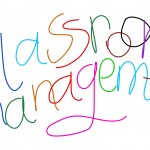You don’t need me to tell you that education is facing a crisis in funding, teachers, and, most importantly, confidence. When it feels like so many people outside the public education sphere are not supporting our mission through action, it’s easy to become externally focused. But, for a second, let’s turn our attention back where we know it can matter.
On ourselves.
I know it’s hard and we’ve got plenty to bemoan. But, if we fail to perform, reflect, and grow, we feed the very arguments against our value. We really only have two choices, accepting the moral responsibility of continuing to strengthen our practices. Or, we move on. To haunt the profession in a perpetual state of martyrdom doesn’t serve anyone particularly well, including ourselves.
Let’s play a game of twenty questions with the only answer key being provided by your own reflection process. Questions like these can help us get at some of the components that we can use to strengthen – or undermine – our mission and advocacy.
- If a peer is shining as a professional, am I openly supportive, skeptical, or critical? What impact does that have on my school’s culture?
- How am I perceived by my peers? How do I know?
- If I asked everyone around me to use one word to describe my professional attitude, which would be the most common?
- How do I respond to mandates, policy, and funding issues? Does it impact how I teach, or do I consistently demonstrate to the community that I deserve the respect I seek?
- Do I really believe that I can make a difference by looking inward when I don’t get the results I would like? Or, does the problem rest with the children, who I don’t perceive as being active and engaged learners, thus rendering my efforts pointless?
- Do I seek professional learning as a matter of principle to grow my practice, or do I go through the motions to meet requirements.
- Do my kids believe I care about them?
- Am I the teacher that I would want for my own children?
Actually, let’s just make it seven questions, instead of 20, partly because I believe question seven might be the only one we need. I would guess that most of us would choose a teacher who answered each with something like:
- Of course! We support each other and I haven’t used the phrase, “Who does she think she is?” since high school! I want to work in a place where the default response is “Way to Go,” not, “Why would she do that?”
- A leader and a positive person! I know because I ask and get feedback from peers and leadership. We all have bad days, but everyone knows who is negative and who is not. Except for the negative person, of course.
- Energetic. Engaged. Flexible. Caring.
- The situation stinks, but it’s not the kids’ fault. The less professional I behave, the more the detractors will use that against us.
- Inward. If a bunch of my kids are failing and I say that’s the best they can do because of their background, then what am I bringing to the table? Why am I here?
- I love learning new things and it’s an obligation to stay current!
- Of course! I’m firm, but they know I’ll do anything for them. I know, because I ask them, as well as their parents! No relationship, no growth.
- Not sure just yet, but I have every intention of getting there. Most importantly, I’d know that my child being with a teacher like me would provide a positive and supportive environment with a teacher that is relentlessly supporting him/her.
So, maybe there is a version of an answer key. Why wouldn’t every child deserve what your child deserves? We’re all dealing with the same obstacles, but if we expect our children’s teachers to put it behind them when they are grading, planning, learning, or teaching, why wouldn’t we expect that of ourselves?.
We have enough of a challenge just battling corrosive external forces. By being the teacher we’d want for our own children, we keep that battle out of our schools, away from our children, and become professionals that are truly worth advocating for.










Comments 1
Thanks Mike for this post. As teachers, we know how important it is for us to reflect on our practice, but we definitely don’t do enough of it. Deliberate reflection on our teaching practices can truly contribute to excellence in teaching, and improved educational outcomes for our kids. It allows us to understand more about the positive impacts of high-quality effective pedagogies on student learning and as your post demonstrates–with our peers as well. I especially like questions 5 and 8. These questions get to the heart of looking at what we do in the classroom, thinking about why we do it, and thinking about if it is working (or not) and what our next steps are…It’s like our National Board architecture of teaching